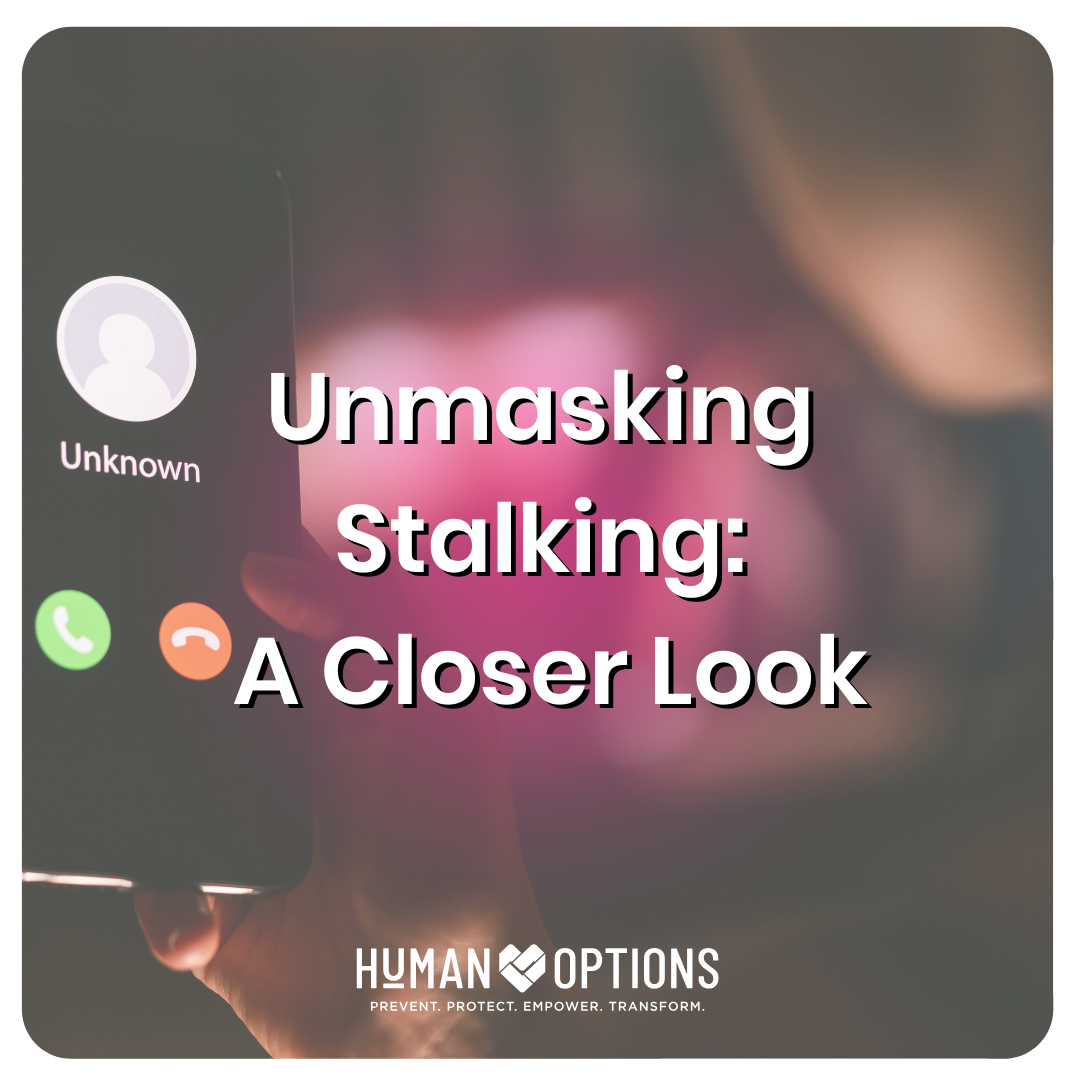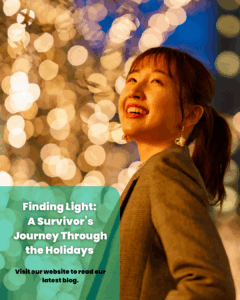By: Mieka Bledsoe, LMFT, Clinical Program Supervisor
When it comes to understanding the complexity of relationship violence, it can be difficult for bystanders and even victims themselves to recognize abusive behaviors. Distinguishing between a one-time occurrence and subtle patterns of abuse can be tricky to dissect. What might come off as feelings of love and a need for companionship, such as lovebombing, is often overlooked or not even considered to be abuse. This term is often used loosely, but is incredibly serious: stalking. Stalking is connected to abusive relationships, revealing a dangerous power-play rooted in control and manipulation.
Stalking as an abusive tactic within intimate relationships serves as an ominous precursor to a broader pattern of control and manipulation. By understanding the shared dynamics and recognizing the early warning signs, we can work towards breaking the cycle of abuse.
Stalking is a type of abusive behavior, stemming from a desire to dominate and manipulate, shifting what should be a healthy relationship into a power struggle. Stalking is often perceived as an isolated act from an individual the victim does not know. The majority does not know that it can occur within an abusive relationship. Stalkers employ various tactics to assert dominance over their victims, such as invasive monitoring, constant surveillance, and unwarranted interference in personal matters. This need for control is a red flag that should not be underestimated.
Stalking is not confined to physical intrusion; emotional and psychological abuse can also be inflicted. Abusers often use gaslighting, manipulation, and psychological torment to erode their victims’ sense of self-worth and independence. This abuse sets the stage for the victim to become more susceptible to further control and manipulation. Stalkers may send threatening messages, vandalize property, or even physically confront their victims to instill fear and intimidate. This constant undercurrent of fear not only paralyzes the victim but also reinforces the stalker’s control over their life. This climate sets the stage for an abusive relationship where the victim may feel powerless to escape.
Breaking the silence surrounding the intersections between stalking and relationship violence is crucial. Recognizing the warning signs of stalking and addressing them promptly can help prevent victims from experiencing further harm. Support networks, including friends, family, and professionals like those at Human Options, play a vital role in providing assistance and resources for victims and survivors looking to break free from the cycle of abuse.
If you or someone you know might be experiencing stalking and need help, please call 1-877-854-3594.





